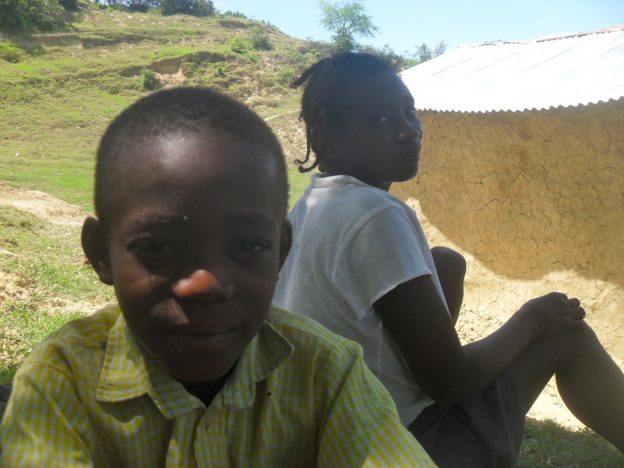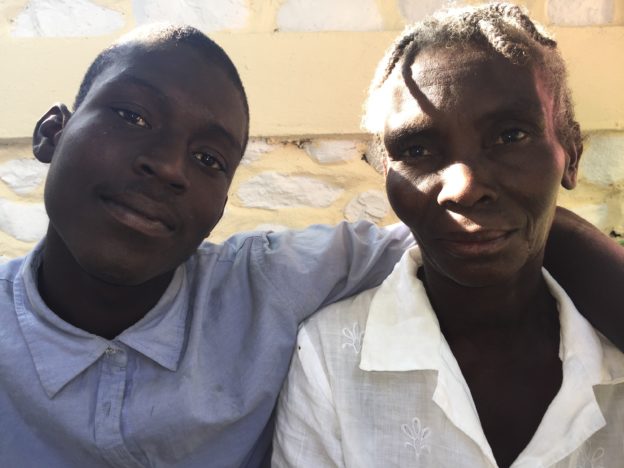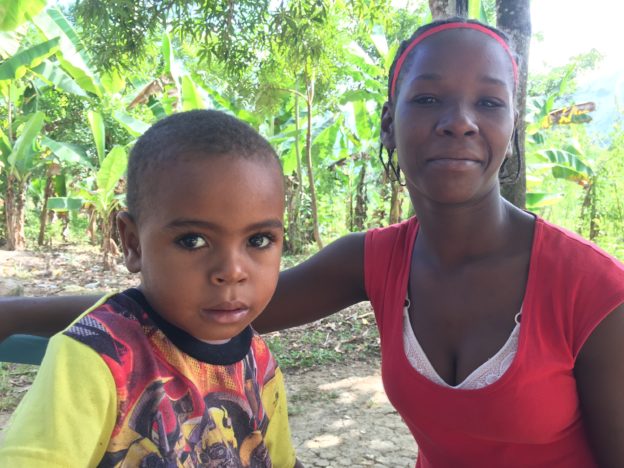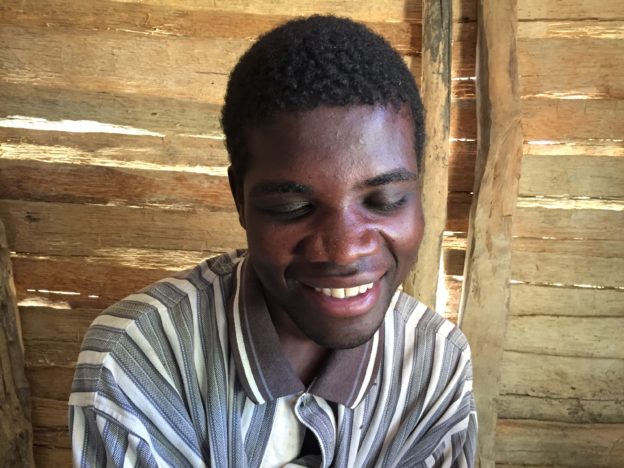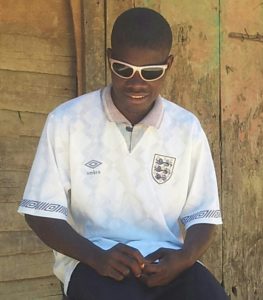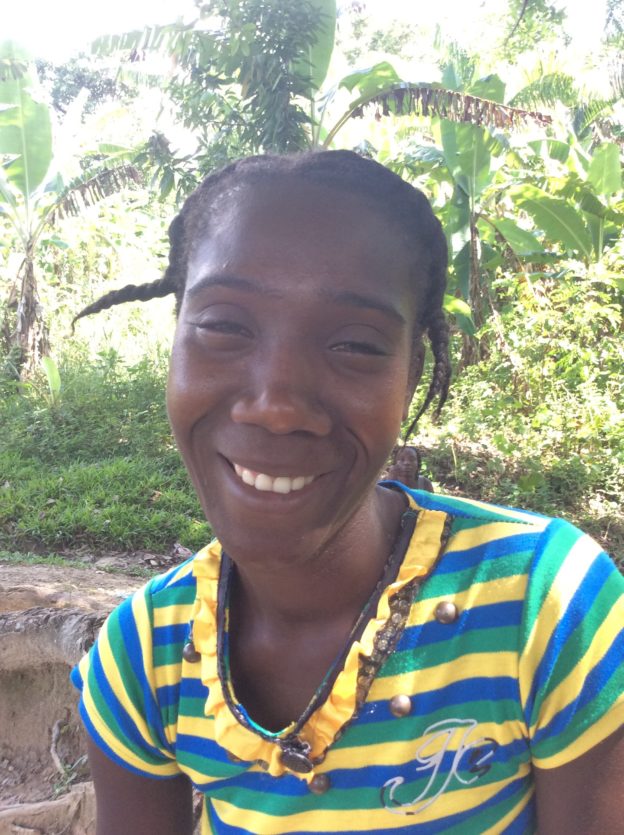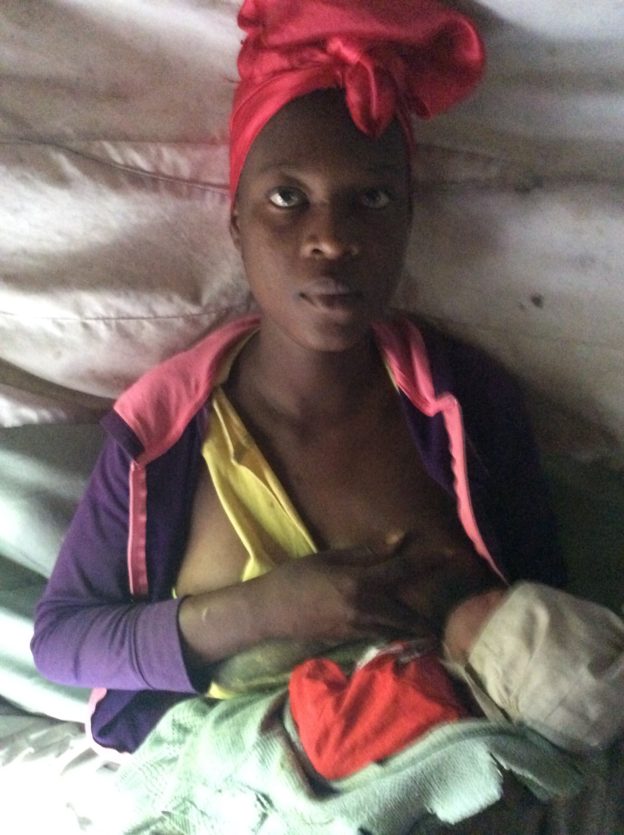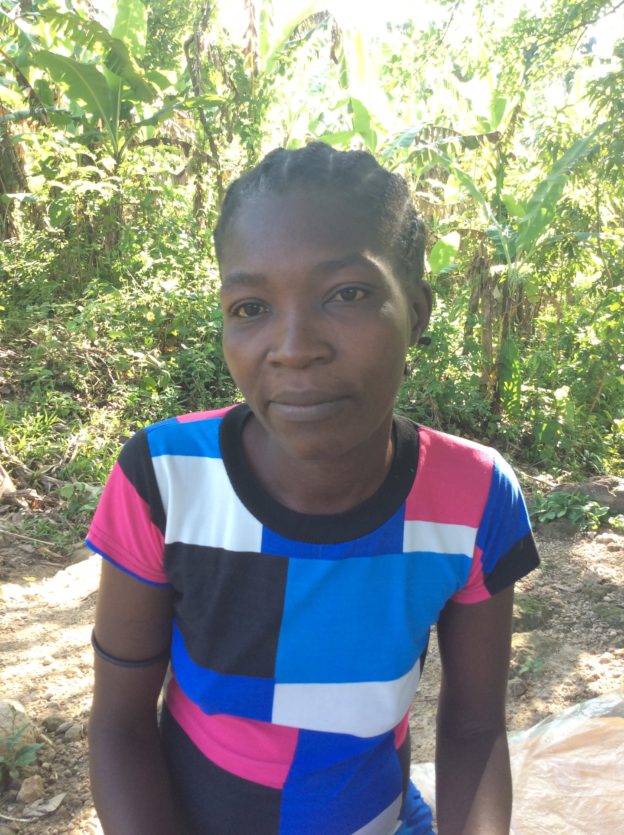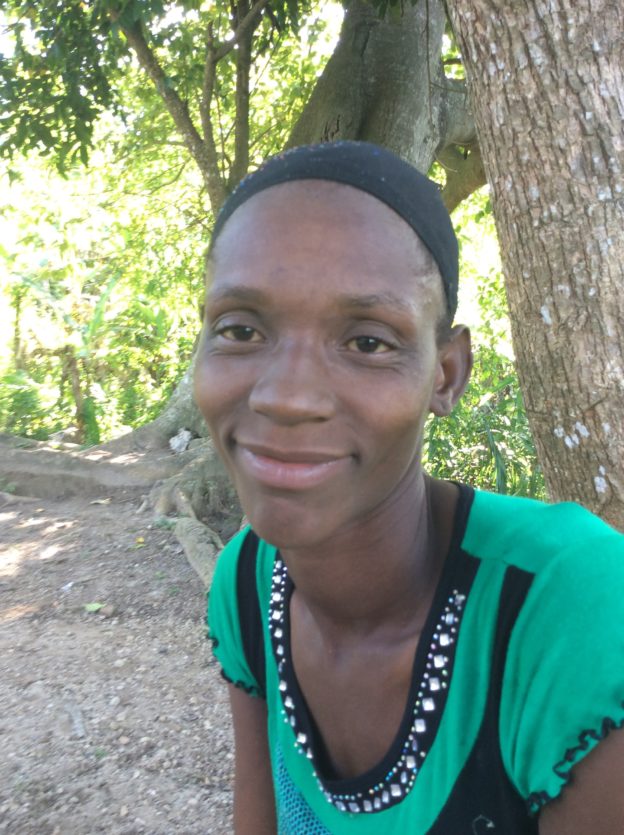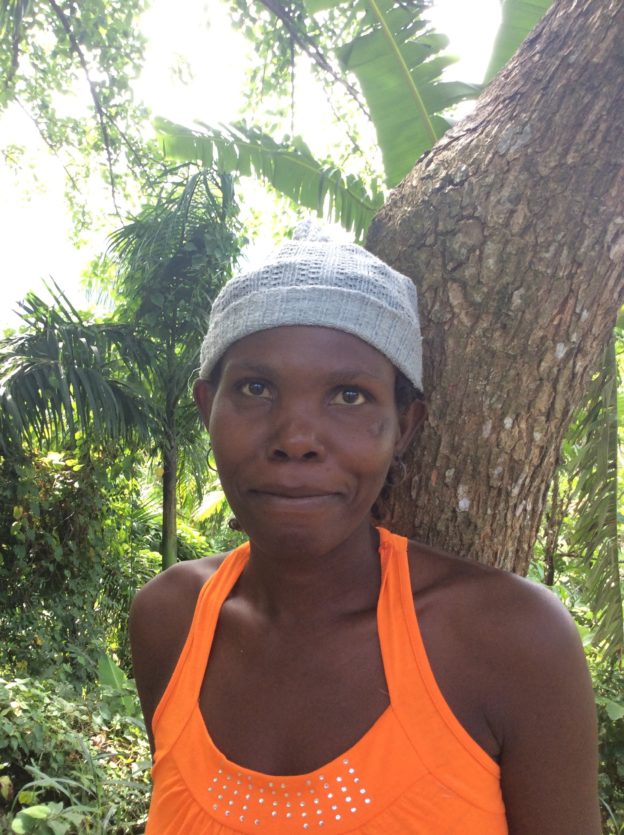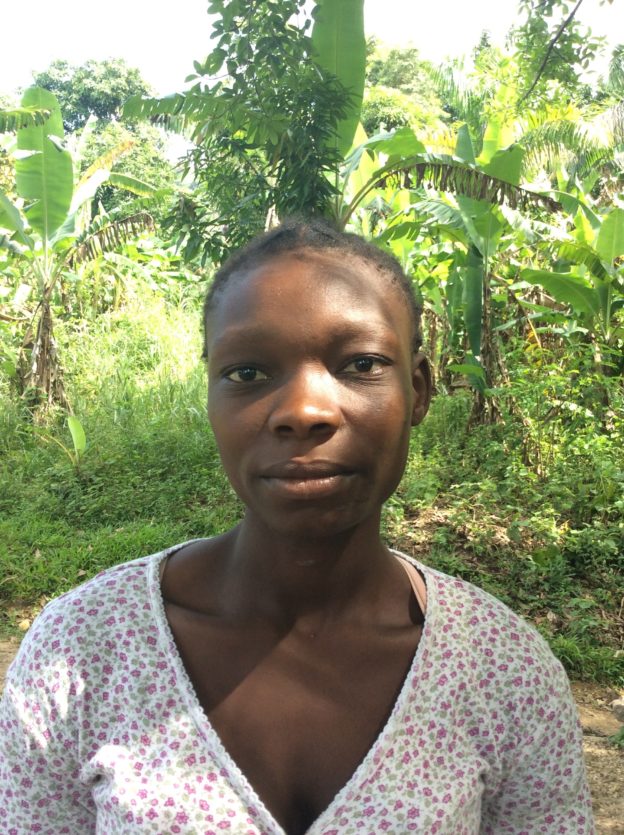When Calmise first saw CLM staff circulating around her neighborhood asking questions, she didn’t think anything of it. Even when they came to speak to her about her disability, she assumed nothing would come of it. “I’m used to it. People would come by, take my picture, and then they’d tell us that they’ll come back with help. We’d never see them again.”
She’s a lively young woman, but she was born with badly deformed feet. Her insteps are straight. She has no ability to bend her ankles. So the soles of her feet are nearly parallel to her calves. She can’t stand on them. She gets around nimbly by walking on her knees. It means that she can’t get far very easily.
Calmise was living with her mother and stepfather when CLM’s selection team passed through Pouli, but the older couple was breaking up. As the mother prepared to moved back to Belladère, where she was from, she pondered what Calmise should do. “She told me to stay in Pouli because she didn’t want me to miss out on the program.” So Calmise moved in with her older sister and their mother moved away.
She began to think that the program was something serious when she started to receive her weekly visits. Her case manager would come on Wednesdays, and sometimes other members of the staff would come as well. She chose pigs and small commerce as her two activities, but she says she never had much luck with livestock. Her pig died, though she was able to sell it and add the money to her savings. She bought two goats while she was in the program, and her older brother keeps one of them for her, but she ended up selling the other and putting the money aside. The savings from those sales, together with other savings from her weekly stipend and her small commerce, enabled her to buy a young bull for 10,000 gourds, which she gave to a neighbor to keep for her. They’ve agreed to keep it while it grows until the can sell it for about 17,500, which will be enough for them to buy a female that will be ready to breed.
Her real income now comes from her commerce. She has a very small one that she manages on and off, selling cookies and crackers and other small packaged snacks to neighbors. It works when she is at her sister’s house, but when she travels, as she regularly does, to the house she built next to her mother’s, in Belladère, it doesn’t work. That house has too many little hands looking for a snack. Her family ends up eating into her profits.
Instead, she invests in kasav, traditional Haitian flat bread made of finely grated manioc. It is the same business that her mother is in, so she can give her mother money to buy manioc when she buys for herself. Calmise then prepares her own kasav for sale.
They key to her progress has been how she’s learned to save. She received four-weeks of training on why and how to saved that was adapted by a program developed by Texas Christian University professor Dawn Elliott. The program, called “More than Budgets,” emphasizes the importance of establishing the habit of savings through setting savings goals and creating social pressures that favor savings. Calmise received a small box, but for 18 months her case manager kept the key. She would make a deposit into her box during each weekly visit. Every six months, Calmise could earn a small cash prize if she saved consistently, and those prizes contributed a lot towards the purchase of her bull.
Calmise feels differently about herself now that she has been through the program, and others see her differently. “It used to be that my family wouldn’t even take me to the hospital if I was sick. Now they’ll take me even if I don’t have the money to pay for it at the time. Thy value me. I have value in everyone’s eyes.”
And she has advice for those who might join the program in the future. “Don’t think of it as a small thing. Look at it as a big deal. take care of every little thing you’re given, because they can grow into big things eventually.”
